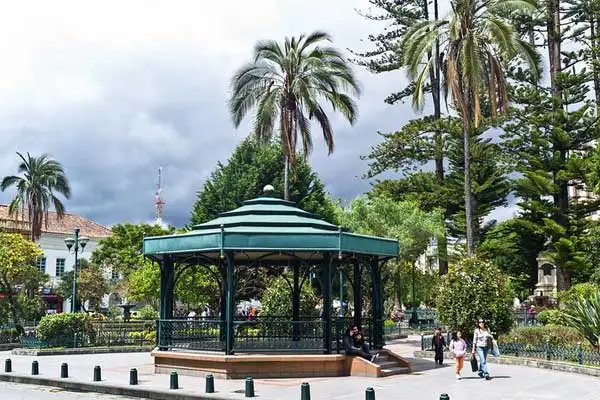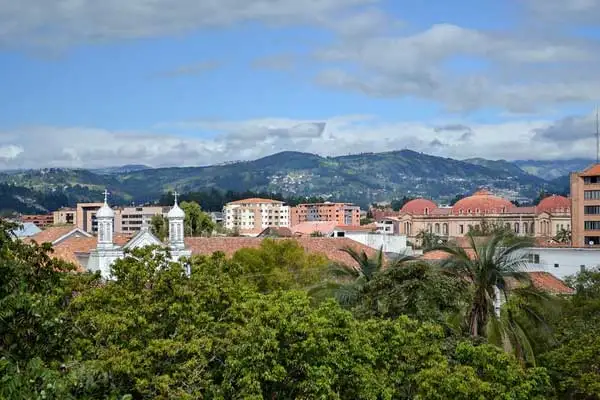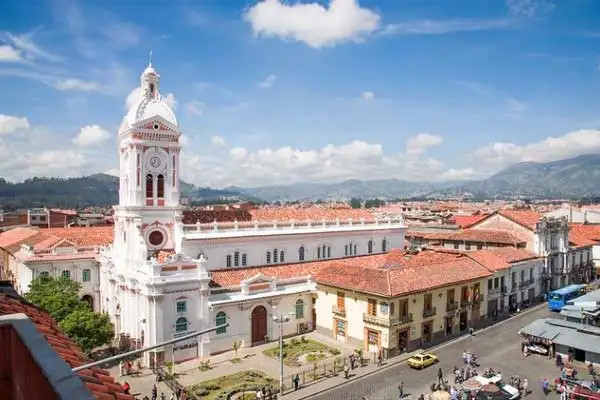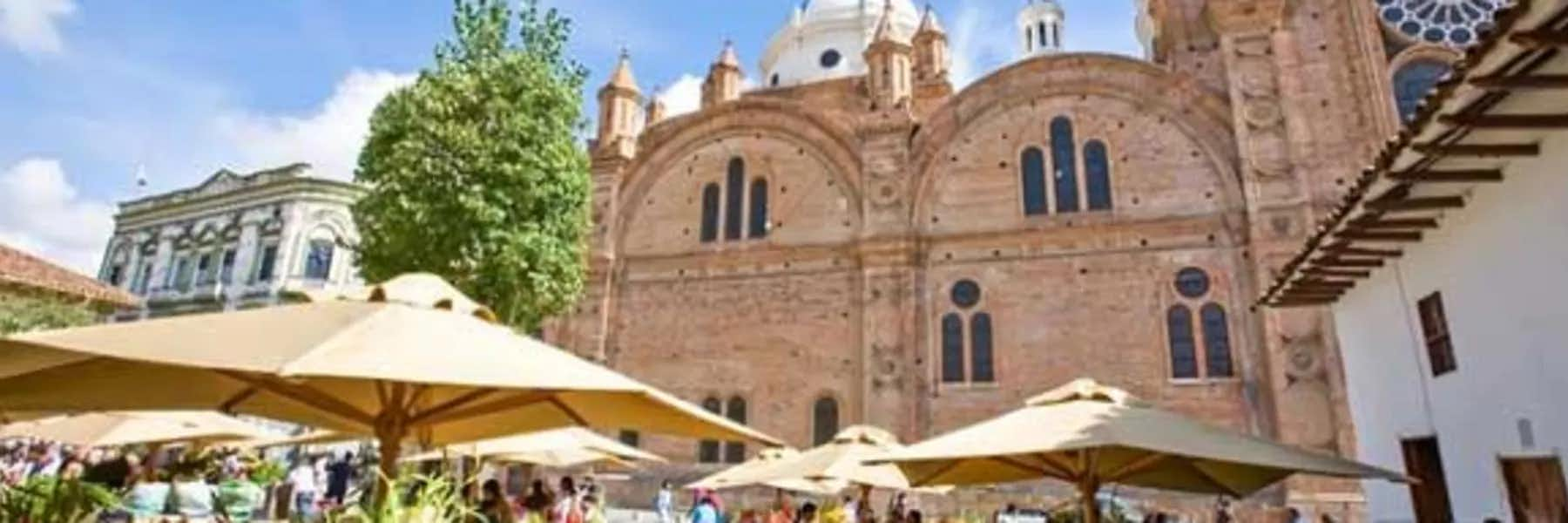This first thing I noticed in my new life as an expat was that I could sleep in and drink coffee until 10 a.m., no longer rushing to take a shower before heading into the tsunami of my overworked, anxiety-filled life in the U.S. It was a taste of freedom I hadn’t experienced in decades.
My life was finally my own.
Now after living in Cuenca, Ecuador, for seven years, I understand the stages of becoming an expat.
I’ve experienced the euphoria of being in love with Ecuador where Cuenca could do no wrong. I’ve experienced the frustration of trying to speak Spanish while urgently seeking a bathroom. I learned mañana doesn’t mean tomorrow but sometime in the future. I’ve become a hoarder, snagging all the jars of Jiffy peanut butter from supermarket shelves.
I found that these struggles made me stronger and wiser. But knowing the stages of becoming an expat helped me cope.
Stage 1: The Honeymoon
There is nothing like falling in love. You gush starry-eyed at the Spanish colonial and French republican architecture that earned Cuenca its UNESCO World Heritage status. You pet the llamas at the Pumapungo Museum and Arqueological Park. You watch countless parades with Ecuadorians. You burn effigies on New Year’s Eve to excoriate the past year and eat grapes for good luck for the coming year.
During this honeymoon period you look through rose-colored lenses and rarely see the flaws. Maybe it’s because everything is new, or perhaps you need to justify why you would move halfway around the world to an unfamiliar country.
You’re a tourist first, before becoming an official expat. You grab empanadas fried fresh from street vendors; buy long stem roses for $3 at the Flower Market. You explore the New Cathedral with its three baby blue mosaic domes and eat ice cream from Tutto Freddo in Parque Calderon. With all this walking you drop around 20 pounds.

You’ll temporarily move into a furnished apartment near downtown while you search for the perfect neighborhood. And you won’t care that the furniture sits so low that your knees hit your chin.
You can’t believe how lucky you are as you think about all the shmucks back home still working long hours to support their SUVs and McMansions with no time to enjoy life. You savor doing nothing as your reward for being willing to take the risk.
Stage 2: Getting Settled
You’re still enjoying your honeymoon period but the rooster next door waking you up at six a.m. every morning is starting to grate on your nerves, and you start thinking if you should throw your hot coffee at him to stop the crowing.
The neighbor’s barking dogs and Saturday night parties start wearing on you and you decide it’s time to stop sightseeing and find a new place.
You’ve explored the town long enough to know which areas are preferred. There’s lots to choose from—two bedroom/two bath modern condos in Gringolandia or Ecuadorian homes with postage stamp size yards just outside of El Centro.
All you really want is to not be near a rooster.
You find the right place and sign your first lease.

This is where some real fun begins as you start filling your new home with furniture, appliances, and wall hangings. You find baskets of all sizes in Rotary market and pine furniture which you paint lively colors to match the multicolored textiles you bought at San Francisco market.
You start facing challenges—like how to get internet, utilities, and bills paid. This is where you also find mañana does not mean tomorrow—it just means in the future, so dates set for appointments are just a suggestion. But you find facilitators, expats, and Spanish speaking friends that can help you wade through it all.
If you pay your bills in cash, you learn you can pay them all in one place at Mall del Rio then go to the food court to get your KFC or McDonald’s fix.
If you brave Spanish lessons, you’ll find other newbies and bond with them like college roommates. You won’t start speaking Spanish quickly, but you’ll also know you’re not the only one.
You’ll start finding expat friends with like interests as you indulge in canasta, hiking, trivia games, and painting classes. You’ll dine in expat restaurants where you’ll find loads of friendly faces who have no problem giving you advice.
The vendors at the small tiendas near your new home where you buy fresh eggs, fruit, and vegetables know you by name. You shop at Supermaxi, a large modern grocer with expat favorites like peanut butter, freshly baked croissants, and roasted chickens.
The neighbors become friends, but you still hear roosters.
Stage 3: The Complaining Starts
This is the stage where you start plotting how you are going to murder the rooster. One more crowing in the morning and you may lose it.
You love your new friends, and your social calendar is filled with concerts, dinners out, nights playing trivia, and volunteering. Your days are filled with the same frenzy as before you left the U.S. but it’s fun stuff and you party more than you have since you were in college.
You get tired of the unpredictable rains which make walking downtown on the marble sidewalks seem like a slip-and-slide. You’ve had your first fall, tripping on uneven sidewalks, and learn the best way to be safe is to always look down.
You start barking back at the loose dogs who taunt you.
You start dreaming of driving to Taco Bell for a bean burrito, but you don’t have a car. You start missing cheese that tastes like cheese. You cry with joy when you find a Snickers bar.
You miss your family and friends back home. I had a total breakdown because my family is very tight-knit and I hadn’t really ever been away from them for extended periods. I found myself whimpering “I want my mama” and I’m 66 years old!
Your husband starts to grate on you and the fact you are with him 24/7 until eternity seems like…an eternity. You beg him to take up hiking, or maybe rooster hunting, just to get him out of the house.
You want to go home, but you don’t have a home in your country anymore. You feel trapped, alone, and depressed. This is your “What have I done?” moment. We all feel that way at times.
Even though you’re happy with your new life; you still miss your old life. Until that is, you go back to visit…
Stage 4: Homesickness
The first visit back home isn’t that joyful moment you picture where the family meets you at the airport and cries tears of joy you’ve returned. It’s a real jolt when you find out they’ve moved on without you.
Your children are working and don’t expect them to take vacation time…that’s for fun times like going to Yosemite, not sitting around with their parents. You’re annoyed when the family teenagers are too busy with their own friends to drop everything because YOU’RE BACK.
You don’t have a car, so you pay the hefty price to rent one but have nowhere to go except Walmart where you fill two suitcases with items not available in Ecuador like clothes that fit U.S.-sized bodies or blonde hair dye.
You come for a month, but after two weeks you wish you hadn’t. You are straddled between two lives: The one you left behind and the one you’re in now.
After you get over the fact that you’re not as special as you thought, you can start realizing how to accept that you have two homes now. For me, this meant making memories with my family rather than just sitting around counting down the days until I left.
My sisters and I have birthdays near one another, so we take September to plan adventure trips together—like hiking the Grand Canyon. I try to go home for Christmas to continue family traditions.
You know you’ve reached your balance when you’re ready to head back to your expat life and find you really miss the tranquilo lifestyle you’ve created. You accept you can have two homes and don’t need to give up either. You just need to treasure your new normal.
Stage 5: You Start to Feel Like a Local
Your Spanish classes are paying off, but you still use pantomiming a lot when trying to communicate. But you’ll have your first breakthrough conversation in Spanish…mine being “Dónde está el baño?” (“Where is the bathroom?”).

You’ve settled into a weekly routine. Some days you grocery shop. Some days you have lunch with friends. You start playing pickleball a couple of times a week. Maybe some poker. You spend nights going to concerts or watching football at Common Grounds.
There’s a new rhythm of life. You start trying things you haven’t done before. Maybe taking up painting. Or gardening. Or hiking through indigenous villages…
You’ve accepted customs, learned to roll with the punches, and don’t mind when the repairman comes late. You stop fussing about stores being closed because the national soccer competitions are airing. If the electricity goes off it’s only for a short spell and so you use the time to run errands. You don’t mind running out of propane because you know how to hook it up without blowing up the house.
You start staying in a bit more, no longer needing the hectic social calendar to keep you busy. You have your favorite foods home delivered and stream Netflix or catch a movie on Prime Video. It’s like your old life, but cheaper.
Stage 6: You’re More Resident Than Expat
After a couple of years, you’ll have your permanent residency and feel like you’re a pseudo-Ecuadorian.
You relish in the low-cost healthcare and enroll in IESS, the government insurance program, for $87 a month. You’ve opened a bank account and pay your bills online. No need to pay bills at the mall…you’ve lost your taste for fast food.
You have shed the fear of living paycheck to paycheck and losing your job. You’re financially secure now. Even better, you have disposable income to travel. You go whale-watching in Puerto Lopez. Or snorkel with giant green turtles in the Galapagos.
Not only do you stop minding the familiar tardiness of Ecuadorians, but you also start being tardy yourself.
Adjusting to becoming an expat isn’t an easy ride. There’s highs and lows. Understanding the stages will help you realize that you are not alone. If you stick it out, you’ll find that life doesn’t end with retirement, but just begins.
You’ll know you’ve made it when the idiosyncrasies of your new home feel as familiar as the home you left behind.
As a final sign you’ve become an Ecuadorian, you’ll buy a rooster.
Related Articles
The World’s Best Places to Retire
